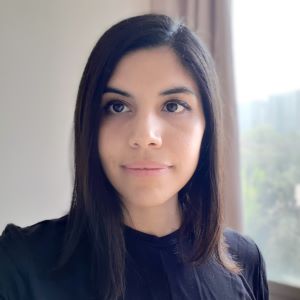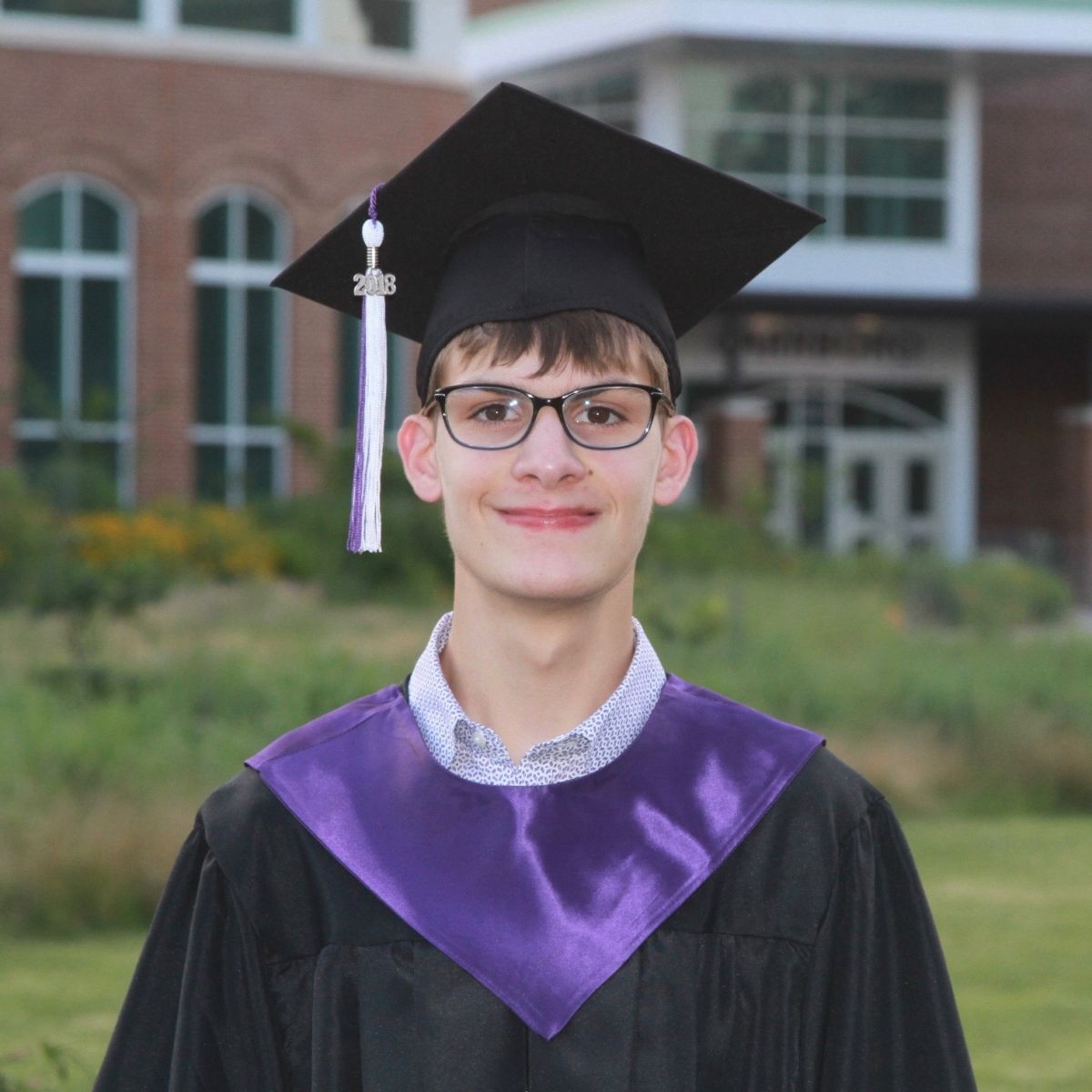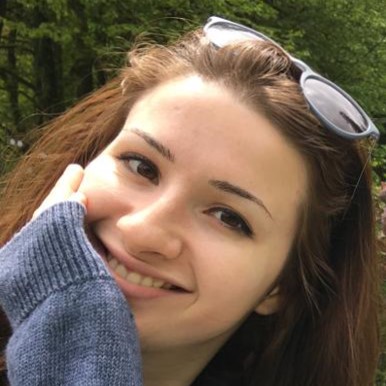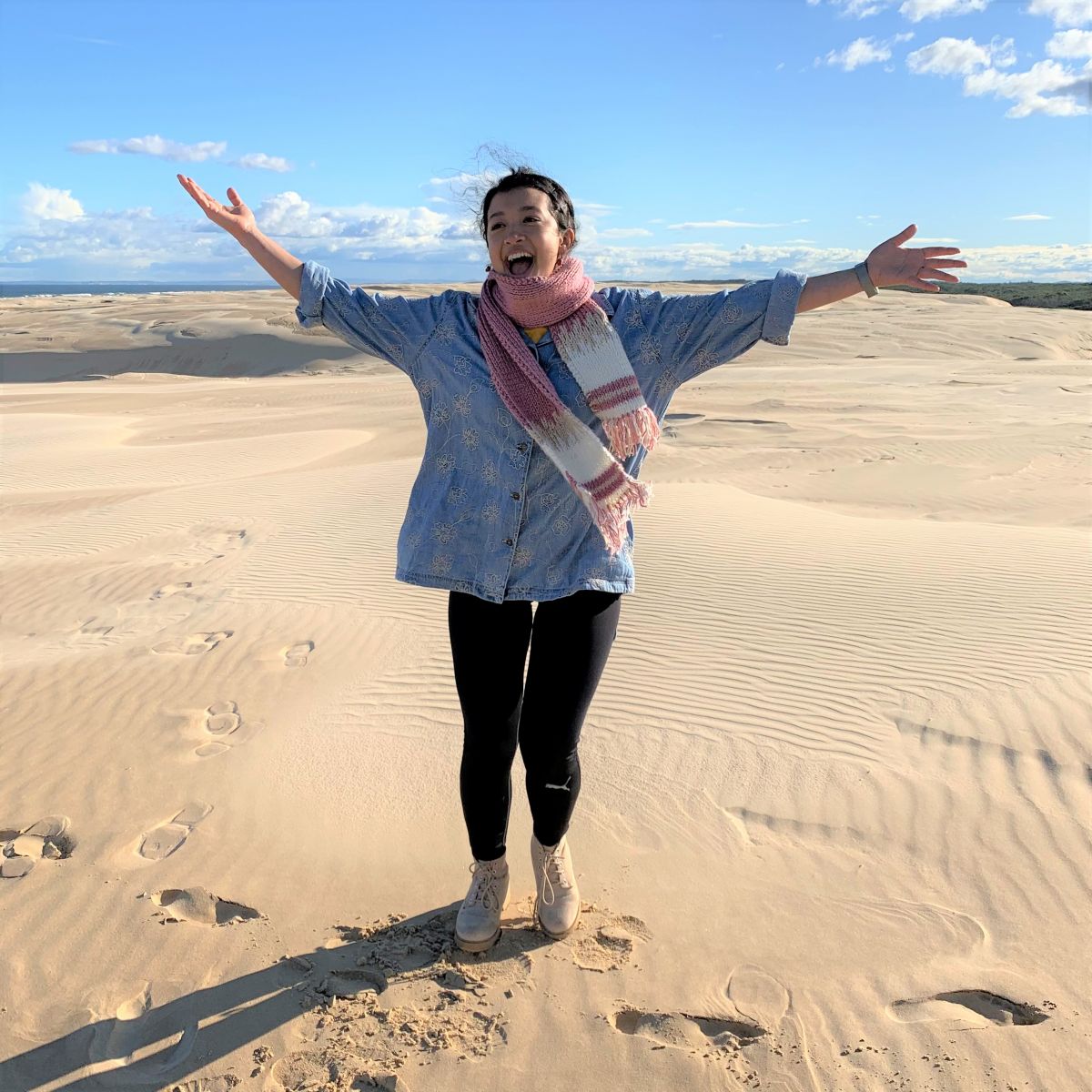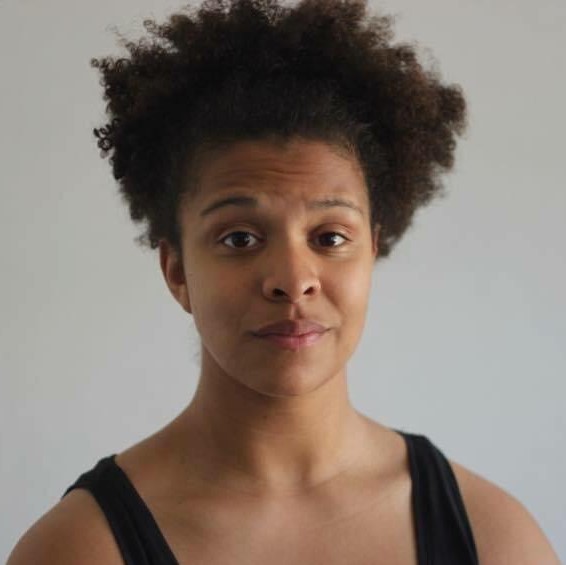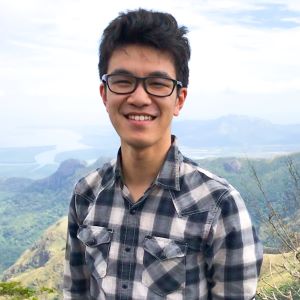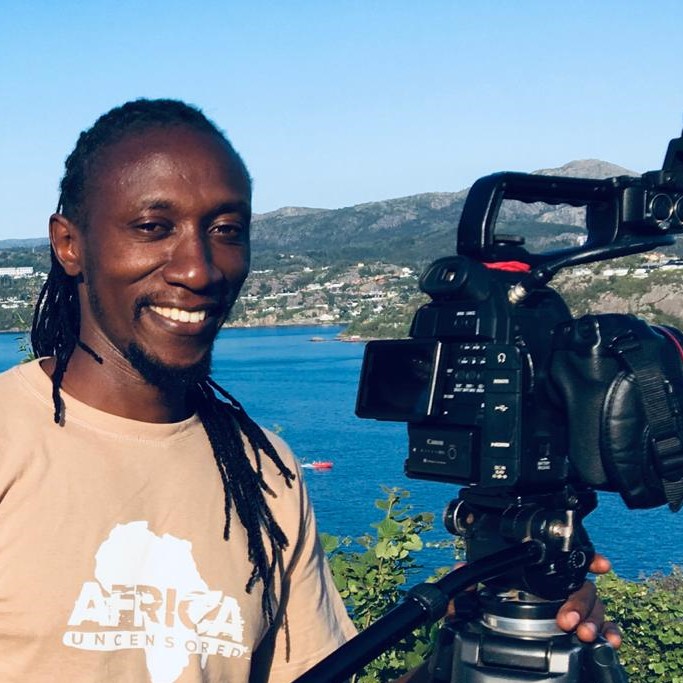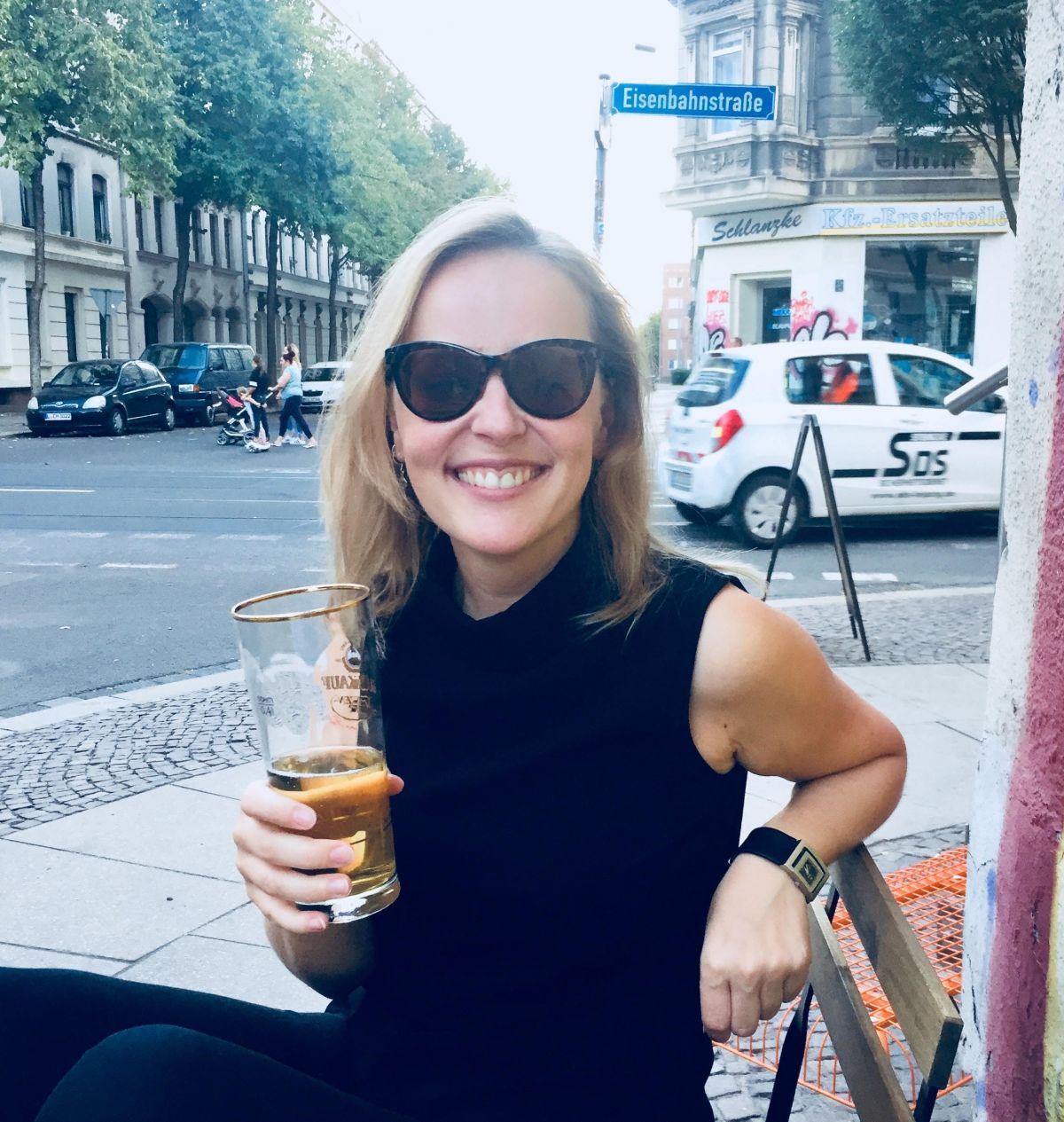Divisione
Vivere tra dittatura e democrazia significa combattere per un futuro migliore.
Chile, Southern America
Story by Yess. Translated by Marta Pellicciotta
Published on July 12, 2022.
This story is also available in 




Ricordi le proteste in Cile negli ultimi mesi del 2019?
Dietro a quelle proteste ci sono 40 anni di repressione e governi falliti.
Ti invito a leggere la mia storia.
13 aprile 1989:
I was born in Chile, between the end of the Dictatorship [1] and the beginning of Democracy [2]. I was born divided between two moments that mark Chile’s history.
1973 – 1990:
Fortunatamente, non ho dei miei ricordi traumatici della dittatura. Quello che so, l’ho saputo da mio padre. Lui visse sotto la dittatura. Nonostante fosse innocente, venne catturato, torturato e interrogato dai militari perché una notte arrivò a casa dopo il coprifuoco [3]. Fu salvato dal plotone di esecuzione [4] da suo fratello, che era un membro dei militari e provò la sua innocenza.
Molti cileni sono stati segnati da quest’era oscura in cui i loro familiari sono scomparsi [5]. Mentre per gli altri, la dittatura era la cosa migliore che potesse accadere in Cile. La classe superiore – gli uomini d’affari e il governo – aveva potere e immense ricchezze; loro erano intoccabili.
Così il popolo cileno era diviso.
16 ottobre 2019:
Gli studenti hanno scavalcato i tornelli della metropolitana di Santiago in segno di protesta contro il recente aumento della tariffa della metropolitana. Il governo ha etichettato questi ragazzini come “terroristi”. Mi sono chiesta, allora, chi sono i terroristi? Coloro che lavorano fino alla morte o uomini d'affari che si arricchiscono mentre le famiglie muoiono di fame lavorando per un salario minimo di 300 $ USD? I terroristi sono i genitori che cercano di pagare le tasse universitarie quattro volte il loro stipendio in modo che i loro figli possano avere una vita migliore? I terroristi sono le persone che muoiono nelle sale d'attesa degli ospedali pubblici senza risorse per prendersi cura di loro?
O il terrorista è il governo che vende fiumi a società private e riempie le casse bancarie dei suoi amici prima di usarle i soldi per l’istruzione pubblica e l’assistenza sanitaria? I terroristi sono i leader che hanno abbandonato le comunità povere durante una pandemia globale [6]?
Vivere tra la dittatura e la democrazia significa vivere in una società che accetta l'autocrazia perché abbiamo eletto il nostro presidente tra i ricchi.
Significa che il “terrorismo” è rivendicare i tuoi diritti di povero, mentre il “successo” è esigere che i poveri continuino a lavorare e morire.
18 ottobre 2019:
Guardando fuori dalla mia finestra, ho visto la polizia attaccare i manifestanti che battevano pentole e cucchiai di metallo come forma di protesta. In quel momento ho capito che il popolo aveva deciso di affrontare con coraggio lo stato repressivo, il quale ha permesso alla polizia di abusare degli studenti che esercitavano il loro diritto democratico alla protesta.
Fu allora che decisi di unirmi al cacerolazo [7]. Questa volta, gli studenti non sarebbero stati soli. Questa volta il popolo, il mio popolo, ha deciso di difendere e unirsi a richieste ignorate dal governo per 40 anni. Adesso c’era qualcosa per cui lottare: la nostra dignità.
18 febbraio 2020:
Le proteste segnano le date sul mio calendario. Per me e per milioni di cileni, il futuro è incerto.
Il governo continua a opprimere il suo popolo. Continuiamo con un Paese diviso tra ricchi e poveri, ma, per una volta, più unito che mai.
Vivere tra dittatura e democrazia significa lottare per un futuro migliore.
[1] Un regime politico nel quale una singola persona detiene il potere totale, non è soggetto ad alcuna limitazione e ha la capacità di emanare e cambiare la legge a suo piacimento.
[2] Un Sistema politico che difende la sovranità e i diritti del popolo di eleggere e controllare il proprio governo.
[3] Coprifuoco: una limitazione o restrizione legale al diritto di movimento in caso di guerra o crisi che interessano un paese o una città. Il rispetto del coprifuoco è garantito dalla polizia e dall'esercito.
[4] Traduzione approssimativa della parola spagnola “fusilamento” – esecuzione mediante fucilazione.
[5] Bernetti, Martin. ‘Where are they?’: families search for Chile’s disappeared prisoners. The Guardian, 14 agosto 2019. https://www.theguardian.com/world/2019/aug/14/where-are-they-families-search-for-chile-disappeared-prisoners
[6] Fuentes, Valentina e Philip Sanders. Once a Covid Role Model, Chile Now Among the World’s Worst. Bloomberg, 16 Giugno 2020. https://www.bloomberg.com/news/articles/2020-06-16/once-a-covid-role-model-chile-now-among-the-world-s-worst-hit
[7] Una forma di protesta in cui i manifestanti mostrano il loro malcontento facendo rumore, tipicamente sbattendo insieme pentole, padelle e altri utensili da cucina.
How does this story make you feel?
Follow-up
Do you have any questions after reading this story? Do you want to follow-up on what you've just read? Get in touch with our team to learn more! Send an email to [email protected].
Talk about this Story
Please enable cookies to view the comments powered by Disqus.
Subscribe to our Monthly Newsletter
Stay up to date with new stories on Correspondents of the World by subscribing to our monthly newsletter:
Other Stories in Italiano
Explore other Topics
Get involved
At Correspondents of the World, we want to contribute to a better understanding of one another in a world that seems to get smaller by the day - but somehow neglects to bring people closer together as well. We think that one of the most frequent reasons for misunderstanding and unnecessarily heated debates is that we don't really understand how each of us is affected differently by global issues.
Our aim is to change that with every personal story we share.
Community Worldwide
Correspondents of the World is not just this website, but also a great community of people from all over the world. While face-to-face meetings are difficult at the moment, our Facebook Community Group is THE place to be to meet other people invested in Correspondents of the World. We are currently running a series of online-tea talks to get to know each other better.











